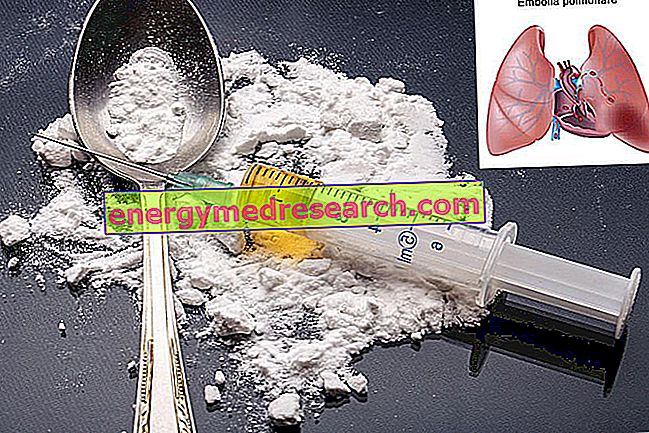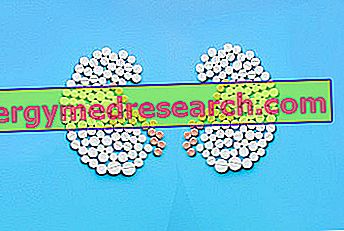
There is talk of pulmonary embolism when a mobile body (or embolus ) goes to wedge itself and obstruct the blood vessels that conduct oxygen-free blood from the heart to the lungs.
In most cases, the embolus is a blood clot formed elsewhere and transferred to the heart; more rarely, it can be an air bubble, a lump of fat, a granule of talc, etc.
The so-called talc pulmonary embolism is a serious condition that could be incurred by those who abuse injectable drugs, such as heroin . Narcotics of this type are in fact prepared by mixing, together with the drug, also other substances, including talc.
Once injected and through the bloodstream, talc can reach the pulmonary capillaries and trigger a particular immune reaction that gives rise to so-called foreign body granulomas.



